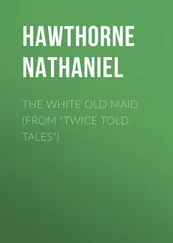But the stream of Miriam’s trouble kept its way through this flood of human life, and neither mingled with it nor was turned aside. With a sad kind of feminine ingenuity, she found a way to kneel before her tyrant undetected, though in full sight of all the people, still beseeching him for freedom, and in vain.
CHAPTER XII
A STROLL ON THE PINCIAN
Table of Contents
Hilda, after giving the last touches to the picture of Beatrice Cenci, had flown down from her dove-cote, late in the afternoon, and gone to the Pincian Hill, in the hope of hearing a strain or two of exhilarating music. There, as it happened, she met the sculptor, for, to say the truth, Kenyon had well noted the fair artist’s ordinary way of life, and was accustomed to shape his own movements so as to bring him often within her sphere.
The Pincian Hill is the favorite promenade of the Roman aristocracy. At the present day, however, like most other Roman possessions, it belongs less to the native inhabitants than to the barbarians from Gaul, Great Britain, anti beyond the sea, who have established a peaceful usurpation over whatever is enjoyable or memorable in the Eternal City. These foreign guests are indeed ungrateful, if they do not breathe a prayer for Pope Clement, or whatever Holy Father it may have been, who levelled the summit of the mount so skilfully, and bounded it with the parapet of the city wall; who laid out those broad walks and drives, and overhung them with the deepening shade of many kinds of tree; who scattered the flowers, of all seasons and of every clime, abundantly over those green, central lawns; who scooped out hollows in fit places, and, setting great basins of marble in them, caused ever-gushing fountains to fill them to the brim; who reared up the immemorial obelisk out of the soil that had long hidden it; who placed pedestals along the borders of the avenues, and crowned them with busts of that multitude of worthies — statesmen, heroes, artists, men of letters and of song — whom the whole world claims as its chief ornaments, though Italy produced them all. In a word, the Pincian garden is one of the things that reconcile the stranger (since he fully appreciates the enjoyment, and feels nothing of the cost) to the rule of an irresponsible dynasty of Holy Fathers, who seem to have aimed at making life as agreeable an affair as it can well be.
In this pleasant spot, the red-trousered French soldiers are always to be seen; bearded and grizzled veterans, perhaps with medals of Algiers or the Crimea on their breasts. To them is assigned the peaceful duty of seeing that children do not trample on the flower beds, nor any youthful lover rifle them of their fragrant blossoms to stick in the beloved one’s hair. Here sits (drooping upon some marble bench, in the treacherous sunshine) the consumptive girl, whose friends have brought her, for cure, to a climate that instils poison into its very purest breath. Here, all day, come nursery-maids, burdened with rosy English babies, or guiding the footsteps of little travellers from the far Western world. Here, in the sunny afternoons, roll and rumble all kinds of equipages, from the cardinal’s old-fashioned and gorgeous purple carriage to the gay barouche of modern date. Here horsemen gallop on thoroughbred steeds. Here, in short, all the transitory population of Rome, the world’s great watering-place, rides, drives, or promenades! Here are beautiful sunsets; and here, whichever way you turn your eyes, are scenes as well worth gazing at, both in themselves and for their historic interest, as any that the sun ever rose and set upon. Here, too, on certain afternoons of the week, a French military band flings out rich music over the poor old city, floating her with strains as loud as those of her own echoless triumphs.
Hilda and the sculptor (by the contrivance of the latter, who loved best to be alone with his young countrywoman) had wandered beyond the throng of promenaders, whom they left in a dense cluster around the music. They strayed, indeed, to the farthest point of the Pincian Hill, and leaned over the parapet, looking down upon the Muro Torto, a massive fragment of the oldest Roman wall, which juts over, as if ready to tumble down by its own weight, yet seems still the most indestructible piece of work that men’s hands ever piled together. In the blue distance rose Soracte, and other heights, which have gleamed afar, to our imaginations, but look scarcely real to our bodily eyes, because, being dreamed about so much, they have taken the aerial tints which belong only to a dream. These, nevertheless, are the solid framework of hills that shut in Rome, and its wide surrounding Campagna, — no land of dreams, but the broadest page of history, crowded so full with memorable events that one obliterates another; as if Time had crossed and recrossed his own records till they grew illegible.
But, not to meddle with history, — with which our narrative is no otherwise concerned, than that the very dust of Rome is historic, and inevitably settles on our page and mingles with our ink, — we will return to our two friends, who were still leaning over the wall. Beneath them lay the broad sweep of the Borghese grounds, covered with trees, amid which appeared the white gleam of pillars and statues, and the flash of an upspringing fountain, all to be overshadowed at a later period of the year by the thicker growth of foliage.
The advance of vegetation, in this softer climate, is less abrupt than the inhabitant of the cold North is accustomed to observe. Beginning earlier, — even in February, — Spring is not compelled to burst into Summer with such headlong haste; there is time to dwell upon each opening beauty, and to enjoy the budding leaf, the tender green, the sweet youth and freshness of the year; it gives us its maiden charm, before, settling into the married Summer, which, again, does not so soon sober itself into matronly Autumn. In our own country, the virgin Spring hastens to its bridal too abruptly. But here, after a month or two of kindly growth, the leaves of the young trees, which cover that portion of the Borghese grounds nearest the city wall, were still in their tender half-development.
In the remoter depths, among the old groves of ilex-trees, Hilda and Kenyon heard the faint sound of music, laughter, and mingling voices. It was probably the uproar — spreading even so far as the walls of Rome, and growing faded and melancholy in its passage — of that wild sylvan merriment, which we have already attempted to describe. By and by it ceased — although the two listeners still tried to distinguish it between the bursts of nearer music from the military band. But there was no renewal of that distant mirth. Soon afterwards they saw a solitary figure advancing along one of the paths that lead from the obscurer part of the ground towards the gateway.
“Look! is it not Donatello?” said Hilda.
“He it is, beyond a doubt,” replied the sculptor. “But how gravely he walks, and with what long looks behind him! He seems either very weary, or very sad. I should not hesitate to call it sadness, if Donatello were a creature capable of the sin and folly of low spirits. In all these hundred paces, while we have been watching him, he has not made one of those little caprioles in the air which are characteristic of his natural gait. I begin to doubt whether he is a veritable Faun.”
“Then,” said Hilda, with perfect simplicity, “you have thought him — and do think him — one of that strange, wild, happy race of creatures, that used to laugh and sport in the woods, in the old, old times? So do I, indeed! But I never quite believed, till now, that fauns existed anywhere but in poetry.”
The sculptor at first merely smiled. Then, as the idea took further possession of his mind, he laughed outright, and wished from the bottom of his heart (being in love with Hilda, though he had never told her so) that he could have rewarded or punished her for its pretty absurdity with a kiss.
Читать дальше












